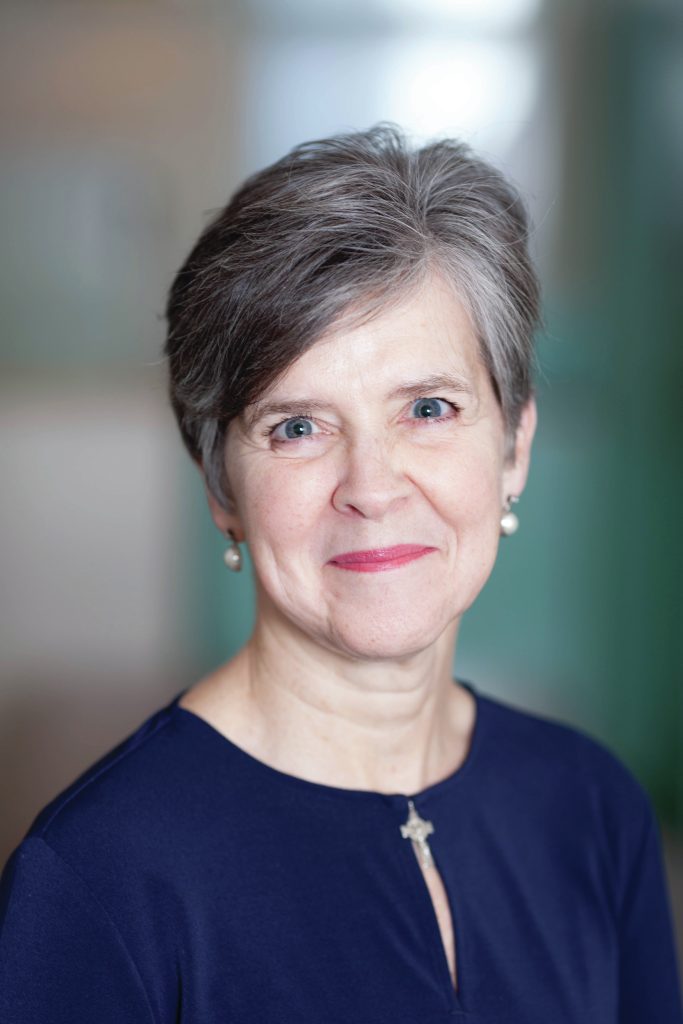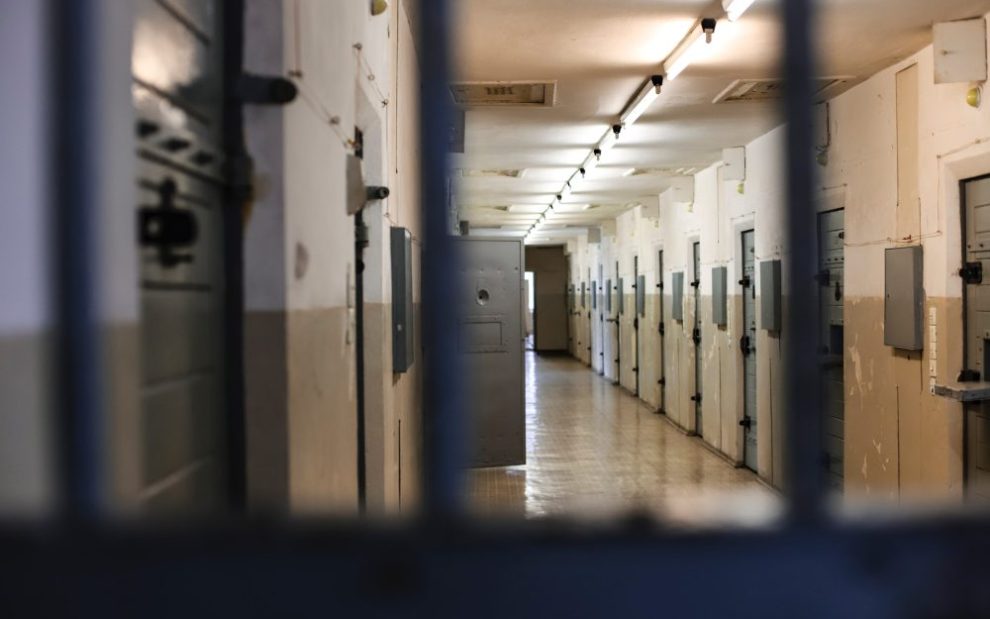After a winding career path that includes working both as an accountant and a physical therapist along with raising five children, criminal justice reform advocate MaryClare Birmingham affirms that she finally landed in the right place at the right time. As executive director of Kolbe House Jail Ministry, an agency of the Archdiocese of Chicago that serves people affected by the criminal justice system, she is excited to be at the forefront of change.

“The landscape of discussing criminal justice issues and incarceration has really been emerging front and center within the past year,” she says. “The death of George Floyd in May 2020 had a huge impact in Chicago. At Kolbe House, it has brought the racial disparities of the criminal justice system to the forefront.”
Birmingham says Floyd’s death spurred new conversations about racial justice and equity, especially in the field of criminal justice reform. “Our community is increasingly disposed to wrestle with the issue of racism,” she says. “This is important because the solutions are not superficial changes but deeper ones—actually creating employment opportunities for people with conviction records, going deeper and seeing the whole person.”
While Birmingham did not set out to work in criminal justice, she believes that the Holy Spirit brought her to where she is today. “I believe all my past career and personal life experience has prepared me and informed my ability to serve in this way,” she says.
Part of her commitment to criminal justice reform stems from her daughters, who she and her spouse adopted from Russia when the girls were 14 and 10. “They grew up with substance abuse issues in their family,” she says. “They are wonderful, loving girls, but they had emotional trauma that shaped them hugely. They had to learn how to trust, how to make good choices, and it took years. That gave me insight about people in the criminal justice system who’ve had struggle and trauma. Resources are needed to help them heal and become who they are meant to be.”
Named for St. Maximilian Kolbe, a Polish priest incarcerated at Auschwitz who voluntarily gave up his life to save another man, Kolbe House focuses its mission on in-jail pastoral ministry, accompaniment of families of those incarcerated, and aid with people’s reentry into the community after they are released. Most released prisoners are placed in halfway houses with nothing but the clothes on their backs and $10: The staff at Kolbe House help them get food, subway and bus passes, stable housing, and employment. They also do activities aimed at restorative justice, such as a weekly Mass of reconciliation followed by a potluck.
As executive director, Birmingham runs the organization’s budget and is responsible for outreach throughout the archdiocese. “Part of our role is to provide education and engagement so that Catholics in our community understand how human beings are affected by incarceration,” she says. “Once people learn about this, they are scandalized and concerned. They want to know what a better vision might be: a model of restorative justice that allows redemption and flourishing. They want to know how we are called as followers of Jesus Christ to revise this system.”
Our ministry is about recognizing the whole person, broken as we all are in sin—unconditionally loved, unconditionally worthy, always capable of redemption and change.
Advertisement
Birmingham notes that misconceptions about those who have been incarcerated are often a stumbling block to realizing this vision. “Our work doesn’t imply that people should not be held accountable for the harm they’ve done, but everyone is worth more than their worst act,” she says. “We have a wide tendency to close the book on people. Our ministry is about recognizing the whole person, broken as we all are in sin—unconditionally loved, unconditionally worthy, always capable of redemption and change. Part of my role is to place Kolbe House in the public conversation so we can contribute a vision of what criminal justice and incarceration should look like in accord with gospel values.”
During the 2020–21 academic year, Birmingham was assisted by volunteer fellow Linde Hoffman, who joined Kolbe House’s team while volunteering for Amate House. She provided administrative support and worked directly with inmates.
Hoffman, who lived in the same University of Notre Dame dormitory where Birmingham lived 40 years earlier, says that working at Kolbe House has inspired her to look at criminal justice reform in a new light. “It’s people like you and me who are incarcerated,” she says. “We forget this, hiding them behind bars, marking them for life by their crime. But people who commit crimes are victims too. There’s so much work to be done in restorative justice, even reimagining what the physical space of a prison looks like. Countries like Sweden and Norway provide job training, mental health care, and the ability for people to leave the facility for a job. We could do that too.”
Hoffman says that she is also inspired by her supervisor’s vision and leadership. “MaryClare has been very generous to have meetings every other week to talk about my experiences and address concerns, to help shape my role at Kolbe House, and to be a steady guiding force in my career,” she says. “She’s a model of female leadership, leading with conviction, strength, grace, and power. I’m a leadership-driven person, and it’s hard to see myself as part of an institution that sets everything in the male image. It’s inspiring to see MaryClare as executive director of Kolbe House when all the predecessors were men and priests. It’s a sign for me that the church is headed toward more female representation.”
“I know it’s celebrated in the archdiocese that I’m the first layperson and woman in this role. We need more lay leadership in the church; we’re all called to contribute to the kingdom of God,” says Birmingham. “Our priests are wonderful, and I rely on them for guidance and direction about how we are called. But there are many who can do the directorship of this ministry. The longer I’m in it, the more I see it’s good for us as a church to broaden the channels of leadership. We’re all called as Catholics to serve. This call should not be defined narrowly.”
This article also appears in the December 2021 issue of U.S. Catholic (Vol. 86, No. 12, pages 45-46). Click here to subscribe to the magazine.
Image: Unsplash/Matthew Ansley















Add comment